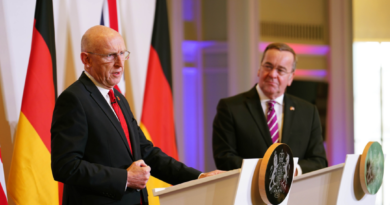Businesses in Ottawa allowed to request exemption from tariffs on Chinese goods
The federal government has announced that businesses can now apply for remission from the newly imposed tariffs on Chinese electric vehicles and steel and aluminum products.
Ottawa aims to provide relief to Canadian industries facing challenges as they make adjustments to their supply chains.
Prime Minister Justin Trudeau revealed on Aug. 26 that Canada will enforce a 100% tariff on Chinese EVs and a 25% tariff on steel and aluminum.
The tariff on Chinese EVs became effective on Oct. 1, while the tariffs on steel and aluminum are scheduled for Oct. 22.
The government will assess requests from businesses that rely on the imported products and are unable to source them elsewhere, or those facing contractual obligations made before the tariffs were announced, along with other exceptional circumstances.
Finance Minister Chrystia Freeland has criticized China for unfair trading practices and “abysmal” environmental and labor standards that allow them to unfairly price and dump products into the market, causing significant harm to the environment and workers.
The tariffs were announced after a month-long consultation process, as required by Canadian law.
The Liberal government’s decision to implement these tariffs aligns with similar actions taken by the U.S. earlier this year, though the U.S. tariffs have not yet been enforced. Pressure from industry groups, including automakers and steel and aluminum plants, influenced Canada’s decision to match the U.S. tariffs.
China filed a complaint against Canada at the World Trade Organization over the tariffs and initiated an anti-dumping investigation into Canadian canola imports, asserting its commitment to protect the interests of Chinese companies.





